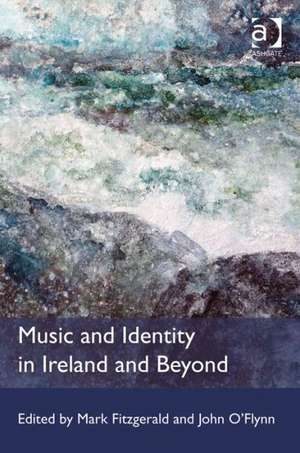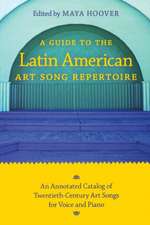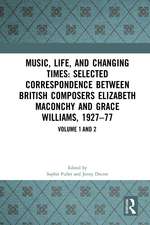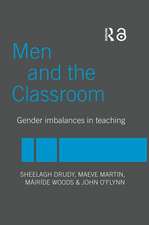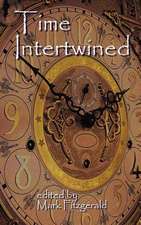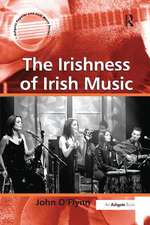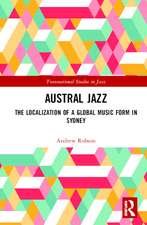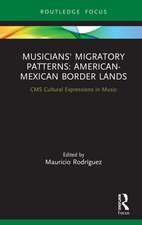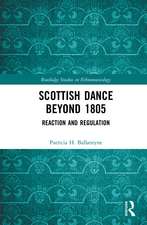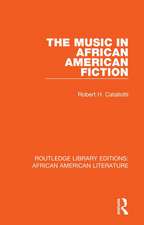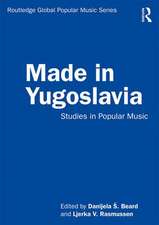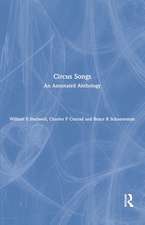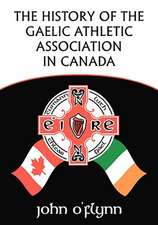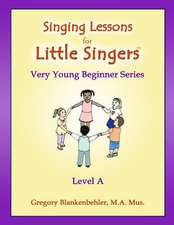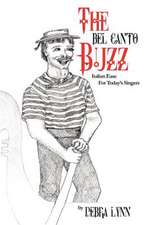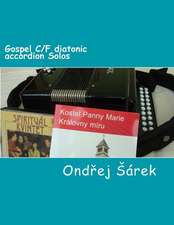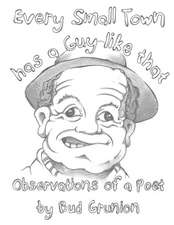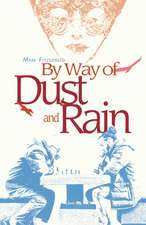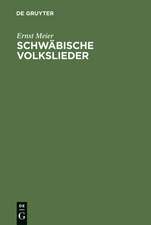Music and Identity in Ireland and Beyond
Autor Mark Fitzgerald, John O'Flynnen Limba Engleză Hardback – 17 iun 2014
| Toate formatele și edițiile | Preț | Express |
|---|---|---|
| Paperback (1) | 491.17 lei 6-8 săpt. | |
| Taylor & Francis – 9 sep 2016 | 491.17 lei 6-8 săpt. | |
| Hardback (1) | 1066.55 lei 6-8 săpt. | |
| Taylor & Francis – 17 iun 2014 | 1066.55 lei 6-8 săpt. |
Preț: 1066.55 lei
Preț vechi: 1300.67 lei
-18% Nou
Puncte Express: 1600
Preț estimativ în valută:
204.12€ • 212.54$ • 172.50£
204.12€ • 212.54$ • 172.50£
Carte tipărită la comandă
Livrare economică 11-25 martie
Preluare comenzi: 021 569.72.76
Specificații
ISBN-13: 9781472409669
ISBN-10: 1472409663
Pagini: 340
Dimensiuni: 156 x 234 x 21 mm
Greutate: 0.79 kg
Ediția:New.
Editura: Taylor & Francis
Colecția Routledge
Locul publicării:Oxford, United Kingdom
ISBN-10: 1472409663
Pagini: 340
Dimensiuni: 156 x 234 x 21 mm
Greutate: 0.79 kg
Ediția:New.
Editura: Taylor & Francis
Colecția Routledge
Locul publicării:Oxford, United Kingdom
Notă biografică
John O'Flynn is Senior Lecturer and Head of Music at St Patrick's College, Dublin City University. He is author of The Irishness of Irish Music (Ashgate, 2009) and has penned numerous book chapters, articles and encyclopaedia entries on a diverse range of topics in the fields of musicology, music education and music sociology. Mark Fitzgerald lectures at Dublin Institute of Technology Conservatory of Music and Drama. His research interests and publications include work on contemporary Irish composers such as Gerald Barry and Raymond Deane as well as twentieth-century composers such as Berg and Busoni.
Recenzii
’... should be added to any serious collection devoted to Irish history, contemporary Irish culture, and music in and out of Ireland’. ICTM Ireland www.ictm.ie ’... this volume is a welcome contribution to the field of music and identity in Ireland.’ Popular Music
Cuprins
Introduction, John O’Flynn, Mark Fitzgerald; Part I Historical Perspectives; Chapter 1 ‘Whatever has a Foreign Tone / We like much better than our own’: Irish Music and Anglo-Irish Identity in the Eighteenth Century, Barra Boydell; Chapter 2 Traditional Music in the Irish Revival, Martin Dowling; Chapter 3 ‘A National School of Music Such as the World has Never Seen’: Re-appropriating the Early Twentieth Century into a Chronology of Irish Composition, Edmund Hunt; Chapter 4 The ‘Irish Music’ of Arnold Bax and E.J. Moeran, Fabian Gregor Huss; Chapter 5 Inventing Identities: The Case of Frederick May, Mark Fitzgerald; Chapter 6 Forging a Northern Irish Identity: Music Broadcasting on BBC Northern Ireland, 1924–39, Ruth Stanley; Part II Recent and Contemporary Production; Chapter 7 ‘From Inside my Head’: Issues of Identity in Northern Ireland through the Music of Kevin O’Connell, Jennifer McCay; Chapter 8 The Honourable Tradition of Non-existence: Issues of Irish Identity in the Music and Writings of Raymond Deane, Adrian Smith; Chapter 9 Dancing at the Crossroads Remixed: Irish Traditional Musical Identity in Changing Community Contexts, Kari K. Veblen; Chapter 10 Morrissey’s Gothic Ireland, Isabella van Elferen; Chapter 11 Post-punk Industrial Cyber Opera? The Ambivalent and Disruptive Hybridity of Early 1990s’ U2, Noel McLaughlin; Part III Cultural Explorations; Chapter 12 Gael or Gall ? Musical Identity in Early 1970s Cape Clear Island, Thérèse Smith; Chapter 13 Positive Vibrations: Musical Communities in African Dublin, Matteo Cullen; Chapter 14 Kalfou Danjere ? Interpreting Irish-Celtic Music, John O’Flynn; Chapter 15 Music in Ireland: Youth Cultures and Youth Identity, Eileen Hogan; Chapter 16 The Invention of Ethnicity: Traditional Music and the Modulations of Irish Culture, Harry White;
Descriere
This interdisciplinary volume of essays contemplates whether ’music in Ireland’ can be regarded as one interrelated plane of cultural and/or national identity, given the various conceptions and contexts of both Ireland and Music that give rise to multiple sites of identification. Arranged in interweaving sections of ’Historical Perspectives’, ’Recent and Contemporary Production’ and ’Cultural Explorations’ its various chapters act to juxtapose the socio-historical distinctions between the major style categories - traditional, classical and popular - and to explore a range of dialectical relationship(s) between these musical styles in matters pertaining to national and cultural identity.
